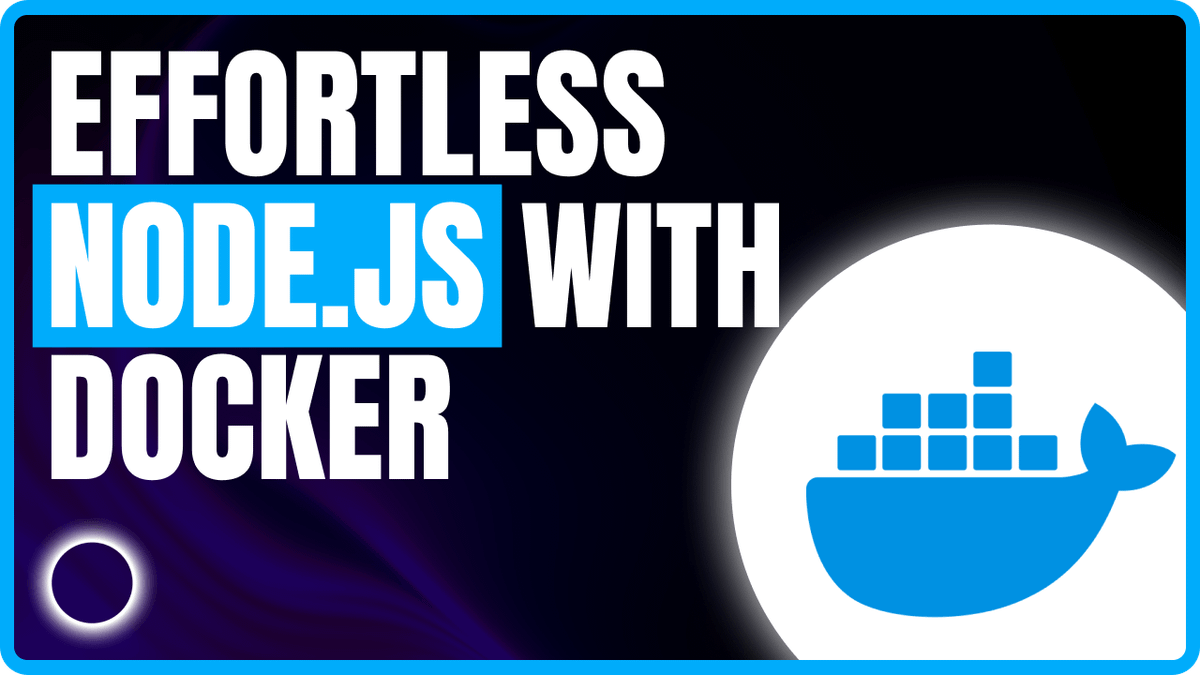How to Effortlessly Develop & Deploy Node.js with Docker
Developing Node.js applications can sometimes become tricky due to varying environments and dependencies. Docker simplifies this by containerizing your applications, ensuring consistent environments from development to deployment. In this guide, we’ll walk you through the effortless process of setting up a Node.js project with Docker.
Step 1: Set Up Your Node.js Application
Start by creating a simple Node.js app or use your existing project:
mkdir my-node-app
cd my-node-app
npm init -y
npm install express
Create an index.js file:
const express = require('express');
const app = express();
const PORT = process.env.PORT || 3000;
app.get('/', (req, res) => res.send('Hello from Docker!'));
app.listen(PORT, () => console.log(`App running on port ${PORT}`));
Step 2: Create a Dockerfile
Docker uses a Dockerfile to define your application’s environment. Create a new file named Dockerfile in your project’s root:
# Base image
FROM node:18-alpine
# Set working directory
WORKDIR /app
# Copy package files
COPY package*.json ./
# Install dependencies
RUN npm install
# Copy source code
COPY . .
# Expose port
EXPOSE 3000
# Start the application
CMD ["node", "index.js"]
Step 3: Use Docker Compose for Easy Management
Docker Compose helps manage your Docker containers effortlessly. Create a file named docker-compose.yml:
version: '3.8'
services:
node-app:
build: .
ports:
- '3000:3000'
volumes:
- .:/app
- /app/node_modules
environment:
- NODE_ENV=development
Step 4: Build and Run Your Docker Container
With everything set up, run the following command to build and start your container:
docker compose up --build
To speed up Docker rebuilds after code changes, avoid using the –no-cache flag. By default, Docker will reuse the cache from previous builds, which makes rebuilds faster unless there is a significant change that requires rebuilding certain layers.
If you use:
docker compose build --no-cache
Docker will ignore the cache and rebuild everything from scratch, which can take a lot more time than necessary.
In most cases, Docker’s default caching mechanism is sufficient and will speed up the process. Use the --no-cache option only when absolutely necessary, such as when dependencies or configurations have changed in a way that requires a complete rebuild.
Now visit http://localhost:3000, and you should see your app running!
Deploying to Production
When moving to production, ensure your environment is set to production by updating your docker-compose.yml or creating a separate production compose file:
environment:
- NODE_ENV=production
Use this simple approach for streamlined deployment:
docker compose up -d
Conclusion
Docker streamlines Node.js development by ensuring consistency across different environments, significantly simplifying both development and deployment processes. Integrate this approach to enhance productivity and reliability in your Node.js projects.
Happy coding!

